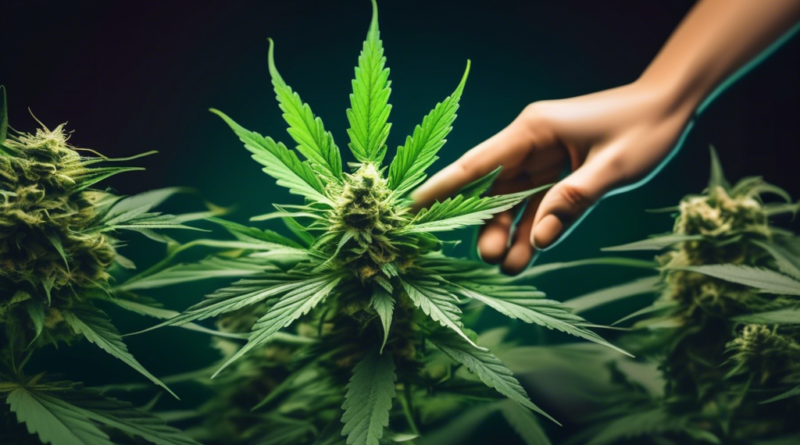FDA Approves Phase 2 Clinical Trial for Cannabis in PTSD Treatment
FDA Greenlights Groundbreaking Study on Cannabis for PTSD
The US Food and Drug Administration (FDA) has recently granted approval for a pivotal Phase 2 clinical trial aimed at exploring the therapeutic potential of cannabis in treating post-traumatic stress disorder (PTSD). This approval marks a significant milestone following a prolonged three-year hiatus on the trial due to safety concerns. The study, known as MJP2, is expected to pave the way for new insights into the use of cannabis as a viable treatment option for PTSD.
Anatomy of the Clinical Trial
The suspension of the MJP2 trial in 2021 was primarily due to apprehensions about the safety of inhaled high-THC cannabis and its administration method. This pause was due to the FDA’s intent to ensure rigorous safety protocols are in place, given the self-titration approach involving high-THC cannabis flower. However, after intensive disputes and extensive negotiations spearheaded by the Multidisciplinary Association for Psychedelic Studies (MAPS), the FDA has now lifted its blockade, allowing the trial to proceed under a framework that maintains participant safety while exploring the drug’s efficacy.
With financial backing from a $12.9 million grant provided by the Michigan Veteran Marijuana Research Grant Program, the trial holds promise for approximately 320 veteran participants. These veterans, who suffer from moderate-to-severe PTSD, have previously engaged with cannabis, thus providing a unique perspective on the drug’s potential benefits. This study seeks to build on the findings of its precursor, the MJP1 study, which documented notable improvements in PTSD symptoms including anxiety, depression, and sleep quality.
Innovative Study Design and Implications
A distinct feature of the MJP2 study lies in its participant-driven dosing mechanism. Individuals participating in the trial are afforded the opportunity to self-titrate their cannabis dosage, selecting THC potencies akin to those available in commercial markets within legalized states. By adopting this real-world consumption pattern into the study design, researchers aim to gather high-quality, controlled data that accurately reflects cannabis’s potential impact as a therapeutic agent for PTSD.
Moreover, the FDA’s conditional acceptance of vaporization as a delivery method, coupled with traditional smoking methods, plays a significant role in aligning the study with practical use scenarios. Additional safety assessments of the vaporization devices used ensure the trial’s adherence to stringent safety standards, thereby bolstering its credibility within the scientific community.
The research significance of the MJP2 trial cannot be overstated. It endeavors to fill existing gaps by accumulating empirical evidence on cannabis’s role in alleviating PTSD symptoms. This research could prove invaluable not only for PTSD sufferers but also for a broader spectrum of patients with similar therapeutic needs.
Expectations for Future Medical Research
The successful reopening of this clinical trial sets a precedent for future research endeavors exploring cannabis as a potential treatment for other serious health conditions, such as chronic pain. The landmark negotiation with the FDA catalyzes a broader acceptance of cannabis research and encourages robust clinical investigations into its medical applications. This could potentially revolutionize treatment strategies, culminating in improved therapeutic outcomes for diverse patient populations.
In conclusion, the FDA’s endorsement of this clinical trial underscores a turning point in cannabis research, ushering in an era of deeper scientific understanding and potentially transformative medical treatments for those affected by PTSD and beyond. The anticipation surrounding the findings of the MJP2 trial is palpable, with implications that could extend well beyond its current scope, shaping the future dynamics of medical cannabis research.

